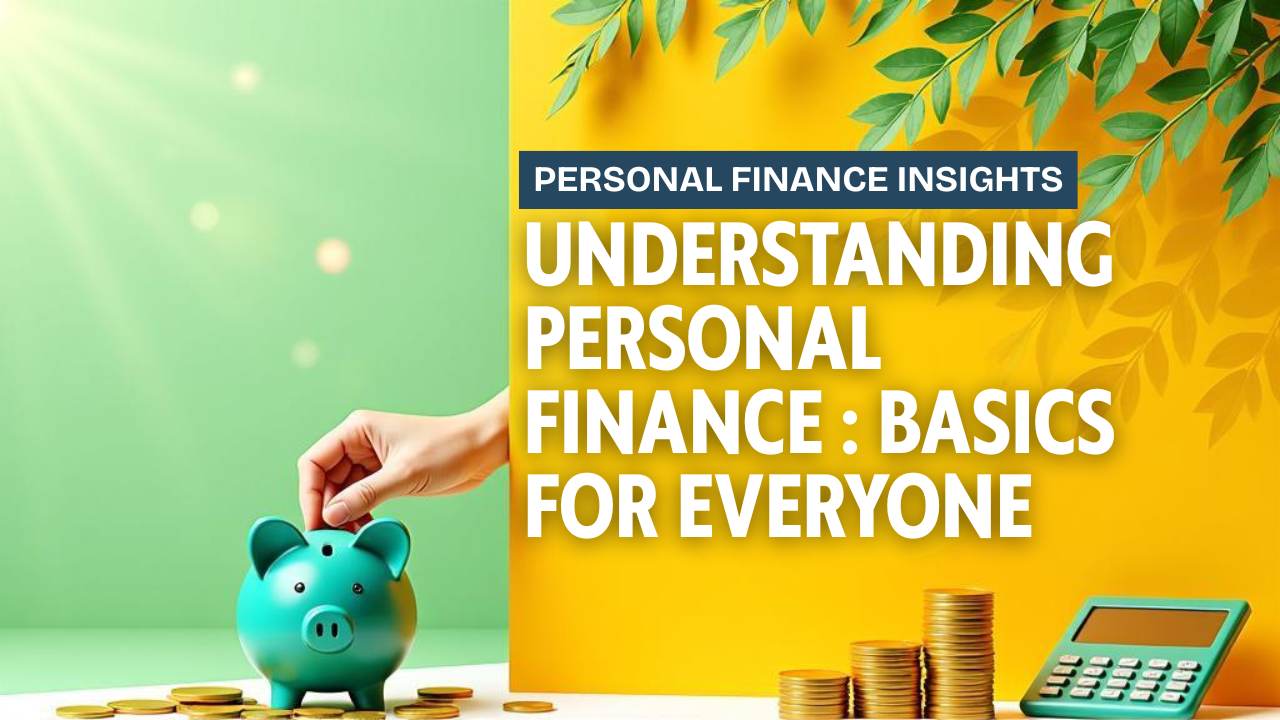Introduction
Understanding personal finance has never been more essential. From earning your first paycheck to saving for retirement, personal finance plays a crucial role in every stage of life. Personal finances involve how we manage money through budgeting, saving, investing, and planning for both short-term needs and long-term goals. But the good news is you don’t need to be an expert to take charge of your finances–all it takes is some basic information and habits!
What Is Personal Finance?
At its core, personal finance refers to all the strategies and decisions individuals use to manage their money effectively – from income management and daily expenses, savings plans, investments, debt repayment, retirement planning, and insurance to daily expense tracking and debt payment plans. Understanding personal finance will allow you to make wise choices that align with both your life goals and financial stability.
Personal finance is unique to each person based on their income, lifestyle, responsibilities, and plans. Yet, its core principles remain constant: managing money to enhance life and reduce financial strain.
The Five Pillars of Personal Finance
To gain an in-depth understanding of personal finances, let’s break them down into five core areas:
1. Income Management
All forms of income need to be managed appropriately – be it salaries, freelance earnings, business revenues, or any other cash sources. Understanding total earnings, tracking sources, and allocating them across your needs all comprise this vital task of overseeing money flows.
Tip:
- Diversify your income sources where possible for the best results.
- Avoid relying solely on one paycheck
- Track your earnings regularly
2. Budgeting and Expense Tracking
Establishing a budget gives your money purpose. A monthly income-versus-expenses breakdown allows you to stay in control by knowing where all the money has gone. Tracking where it goes ensures it stays within the family budget.
Tips:
- For effective budgeting, utilize the 50/30/20 rule (50% of needs, 30% of wants, and 20% savings/debt repayment).
- Use budgeting apps such as Mint or YNAB for effective budget management.
- Adjust your monthly budget based on changes.
3. Saving
Saving is about setting aside money to cover both unexpected and anticipated expenses, such as emergencies, future purchases, or long-term financial security.
Tips:
- Build an emergency fund covering at least six months of expenses
- Automate your savings so they will remain consistent over time.
- Set goals such as a vacation fund, a new car purchase, and a home down payment.
4. Investing
Investing allows your money to expand over time and beat inflation, and can provide long-term gains at higher returns than savings alone. While investing involves some risk, its long-term gains outweigh those from savings alone.
Tips:
- Begin early to take advantage of compounding interest.
- Diversify your portfolio (stocks, mutual funds, and real estate).
- Make investments based on your goals and risk tolerance.
5. Insurance and Protection
Personal finance isn’t all about growing money–it’s also about protecting it from unexpected events like illness, accidents, or loss of life. Insurance provides peace of mind against unforeseen events like illness, accidents, or loss of life.
- Considerations when shopping for insurance:
- Health, life, disability, and property coverage.
Why Is Personal Finance Important?
Understanding personal finance and cultivating sound financial practices can have an enormous impact on our lives. Here’s why personal finance matters so much:
Attain Financial Goals: From buying a car to retiring comfortably, proper financial planning helps you meet your goals faster.
Avoid Debt Traps: Careful budgeting and saving can help you sidestep costly loans or credit card debt traps.
Financial Stability Can Reduce Stress: Financial stability provides peace of mind and eases the anxiety of living paycheck-to-paycheck.
Create Wealth: Through careful investing and savings practices, it is possible to amass long-term wealth. Even financial independence may become achievable.
Common Personal Finance Mistakes to Avoid
Living Beyond Your Means: Spending beyond what is earned can lead to debt problems.
Failing to Create a Budget: Without an effective financial plan in place, money can quickly vanish into thin air.
Neglecting Emergency Savings: Unexpected expenses can have serious repercussions for your finances, so saving for emergency expenses should always be part of your financial strategy.
Delaying Investments: By investing early, your money has more time to grow.
Reducing these mistakes is key to creating a more stable financial path.
Simple Tips to Enhance Your Financial Life
Whether you’re just getting started or trying to correct past errors, here is some helpful advice:
Track Every Dollar: Gain visibility into where every rupee or dollar goes each month.
Reduce Expenses: Cancel subscriptions you don’t use, cook at home more frequently, and avoid impulse buying as ways of cutting expenses.
Prioritize Payoff of High-Interest Debt: Credit cards and personal loans can become financial liabilities if left unmanaged.
Establish Realistic Financial Goals: Set SMART (Specific, Measurable, Achievable, Relevant, and Time-bound).
Educate Yourself: Read books, listen to finance podcasts, or follow financial blogs regularly in order to inform yourself.
Conclusion
Understanding what personal finance is is the first step to taking charge of your financial future. From managing income and expenses, saving, investing, and protecting what you earn, every action taken today builds the foundation for a more secure tomorrow. Personal finances are not about how much you make – rather, it is how well managed that income is. Start now – your future self will thank you!



3 thoughts on “What is Personal Finance? A Complete Beginner’s Guide”